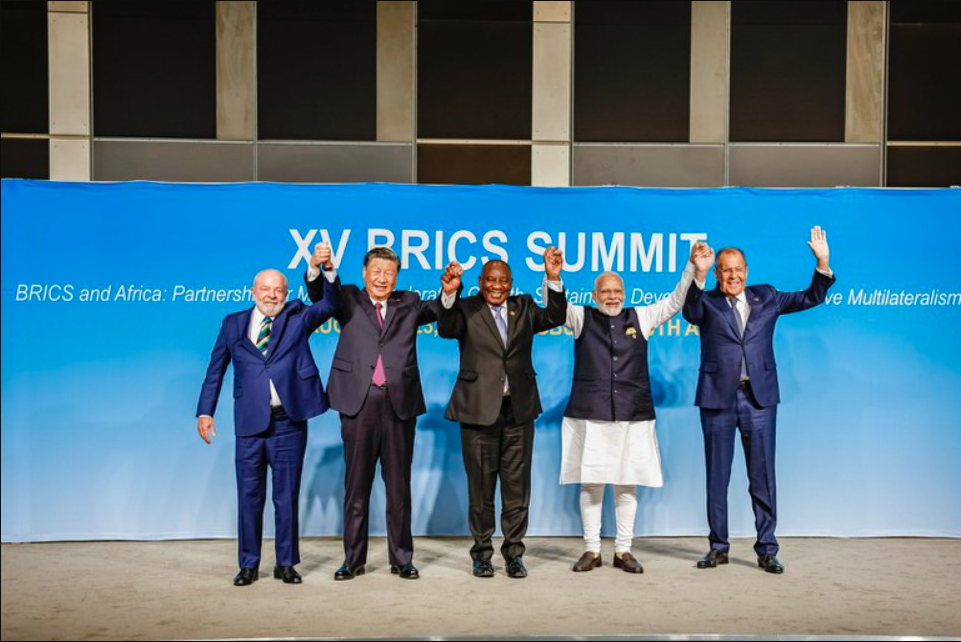
Published 02/01/2025 18:14 | Edited 02/01/2025 18:15
Starting this Wednesday (1st), Brazil assumes the rotating presidency of BRICS, a group that brings together Brazil, Russia, India, China and South Africa, as well as new members recently incorporated, with the mission of consolidating the bloc’s expansion and promote reforms in global governance. With a growing weight in the world economy, BRICS now has ten effective members and plans to include new partners in 2025.
The mandate, which will last for one year, marks the country’s return to leadership of the group at a time of expansion and debates on reforms in global governance and greater cooperation between emerging economies.
Priorities of the Brazilian presidency
The Brazilian government has defined as a priority to strengthen cooperation between countries in the Global South, encourage the use of local currencies in international trade, advance inclusive artificial intelligence projects and face the challenges of climate change. Under the motto “Strengthening Global South Cooperation for More Inclusive and Sustainable Governance”Brazil intends to align the BRICS agenda with strategic themes of global interest.
Itamaraty announced five main themes for Brazil’s presidency:
- Trade facilitation and investments using local currencies.
- Inclusive governance of artificial intelligencewith an emphasis on responsibility and ethics.
- Financing for climate changein line with sustainability commitments.
- Public health in the Global Southpromoting technical and scientific cooperation.
- Institutional strengthening of Bricswith a focus on increasing the block’s effectiveness.
According to Itamaraty, more than 100 work meetings are planned until July in Brasília, culminating in the heads of state summit in Rio de Janeiro. The government also articulates the inclusion of new members and partners in the bloc, expanding the representation of emerging economies in a global order that historically privileges developed countries.
The expansion of BRICS and its challenges
In addition to the five new members incorporated in 2024 — Iran, United Arab Emirates, Egypt, Ethiopia and Saudi Arabia —, nine other countries were invited to join the bloc: Cuba, Bolivia, Indonesia, Belarus, Kazakhstan, Malaysia, Thailand, Uganda and Uzbekistan . The “partners” category, created in 2024, also expands the participation of countries such as Nigeria, Turkey, Algeria and Vietnam, which will have the right to participate in meetings, but without voting power. According to Itamaraty’s press office, the category of participation of these new members — as full members or partners — is still being defined.
Experts highlight the challenges of managing such a large block. For many, expansion brings operational and political challenges such as creating mechanisms to integrate the demands of new members without compromising the bloc’s efficiency.
BRICS and the role of Brazil
President Luiz Inácio Lula da Silva has reiterated the importance of groups like BRICS to expand Brazil’s insertion in international geopolitics. The search for a payment system that reduces dependence on the US dollar is one of the central themes of the Brazilian presidency. The measure, however, generated reactions in the United States. President-elect Donald Trump has threatened to impose tariffs of up to 100% on products from BRICS countries that abandon the use of the dollar.
Experts point out that Trump’s threats reflect the growing weight of the BRICS in the global economy, due to its long-term unviability. Replacing the dollar is seen as a way to reduce vulnerability to fluctuations in the US currency and the impact of US monetary policies on emerging economies. Forums such as BRICS are essential to counterbalance North American hegemony in a scenario of increasing multipolarity.
Global projection and internal challenges
BRICS today represents more than 40% of the global population and 37% of world GDP by purchasing power parity, surpassing the G7 in terms of economic relevance. With the Brazilian presidency, the group seeks to consolidate its role as an alternative to traditional systems of power, promoting inclusion and cooperation between emerging economies.
One of the historic banners of Brics, the reform of global institutions such as the UN Security Council, the World Bank and the IMF, remains highlighted. The group seeks to increase the representation of countries in Asia, Africa and Latin America in these bodies, challenging the structure dominated by developed economies.
However, the success of the Brazilian presidency will depend on the ability to articulate diverse interests among the bloc’s members and to advance concrete agendas, such as institutional strengthening and the implementation of sustainable and inclusive policies.
With the presidency of BRICS, Brazil places itself at the center of debates on the future of global governance, reaffirming its commitment to a more balanced and representative international system.
Source: vermelho.org.br

